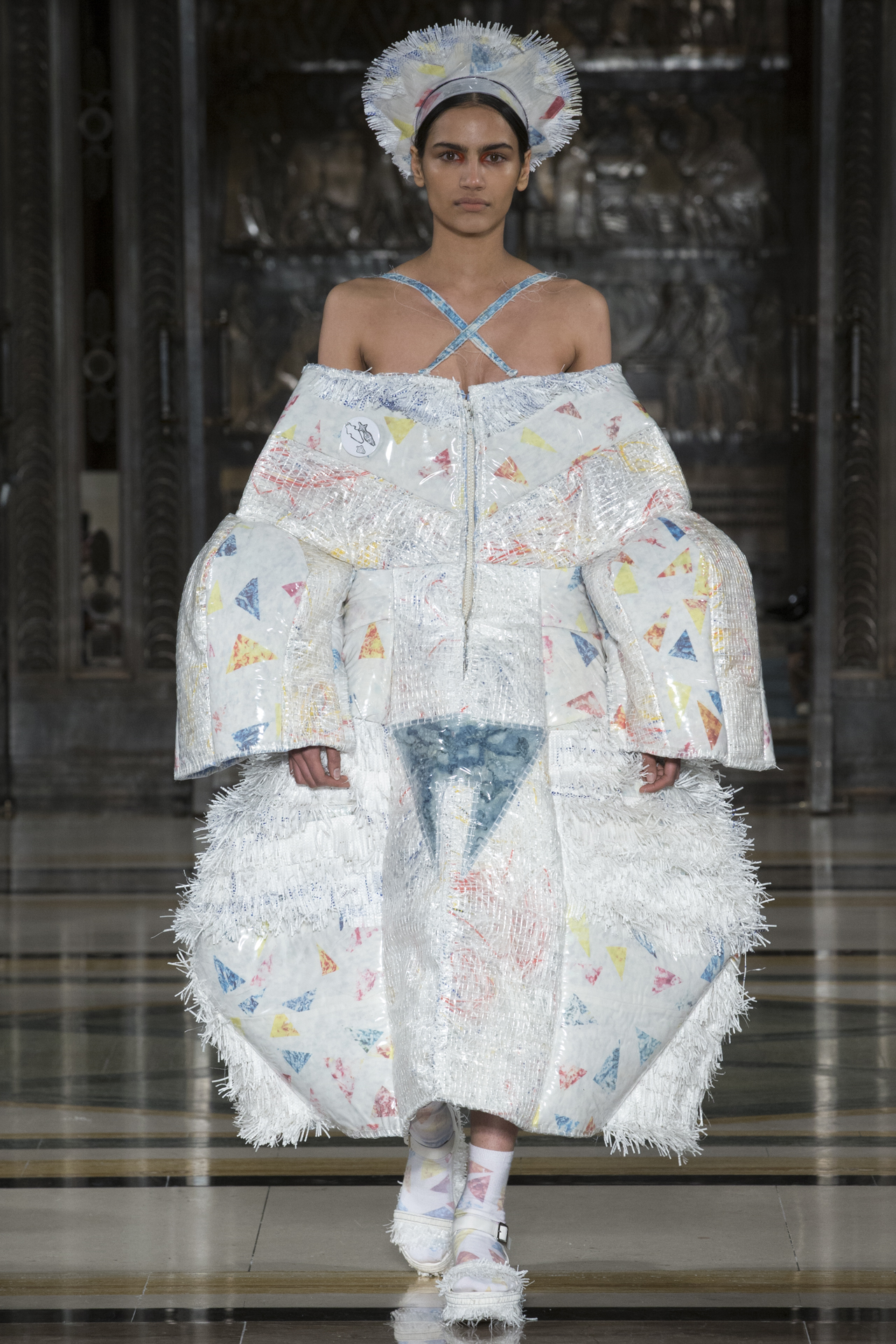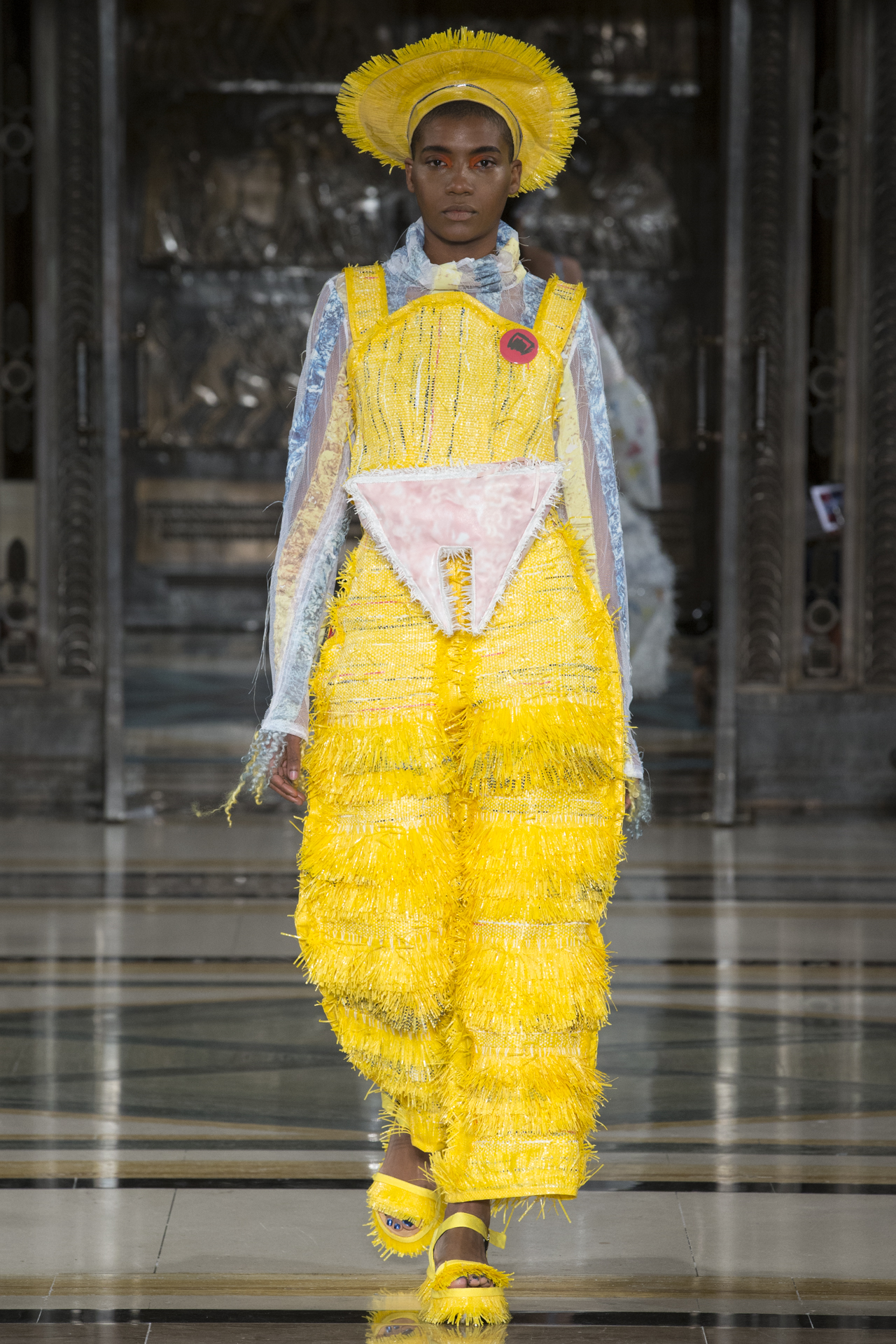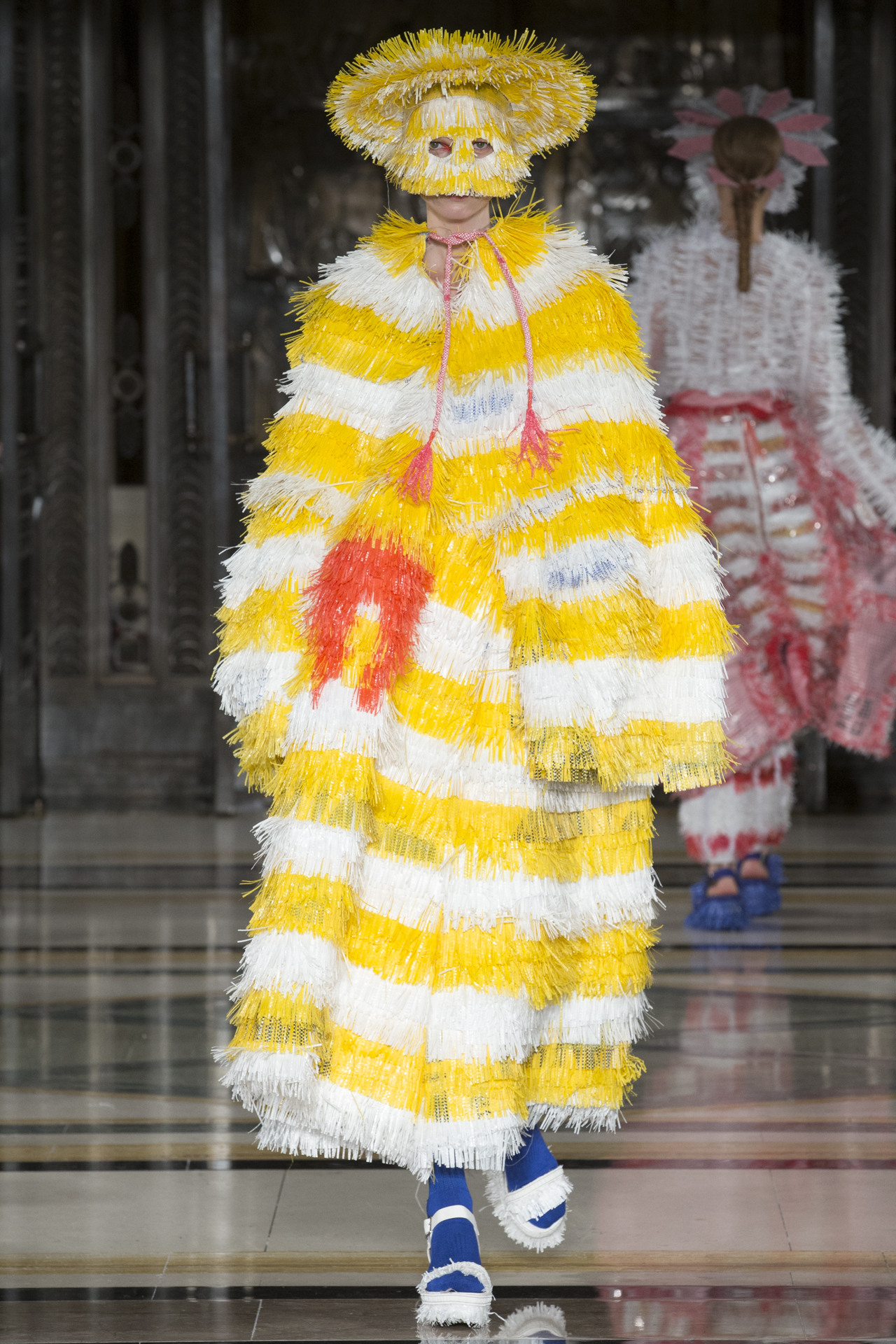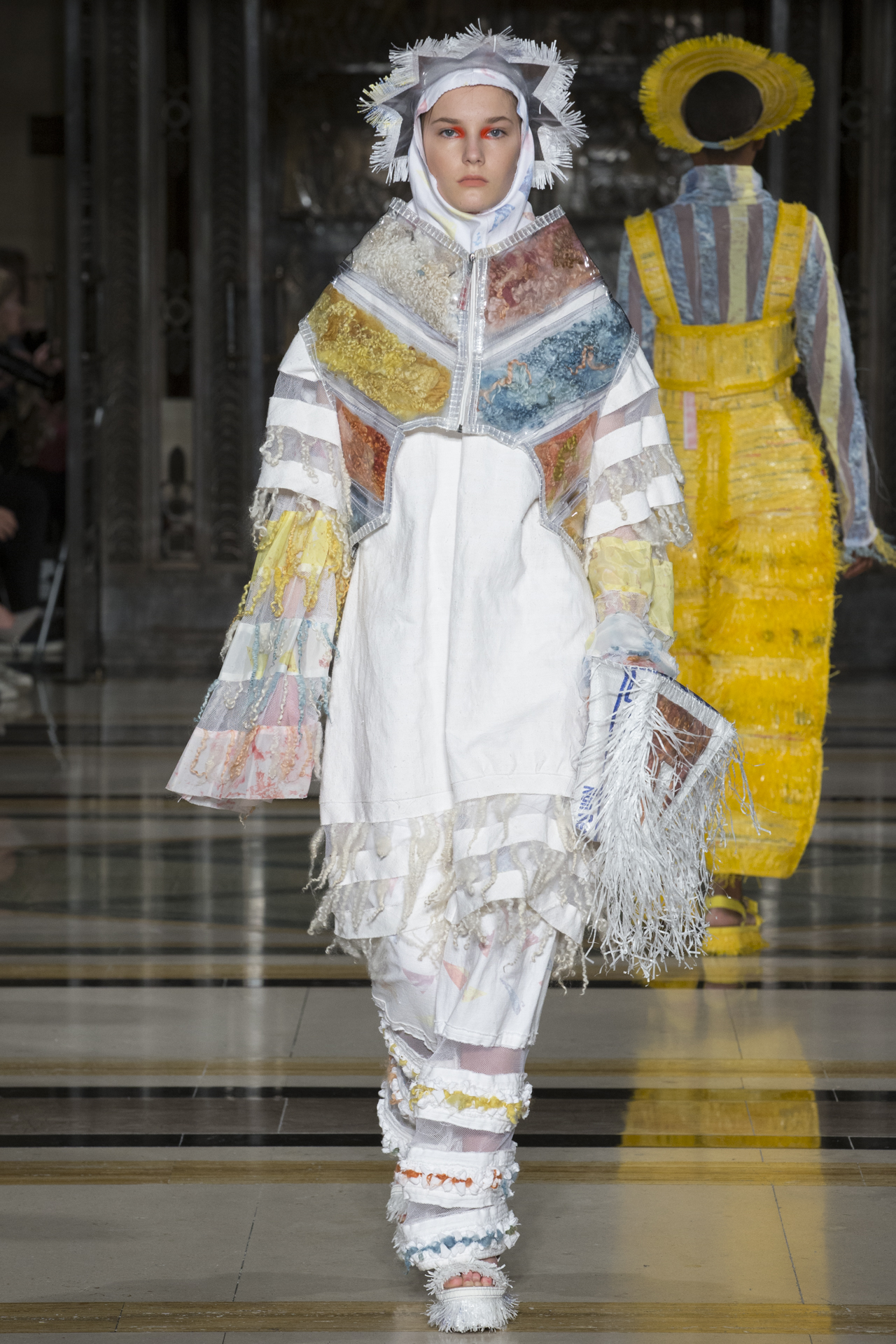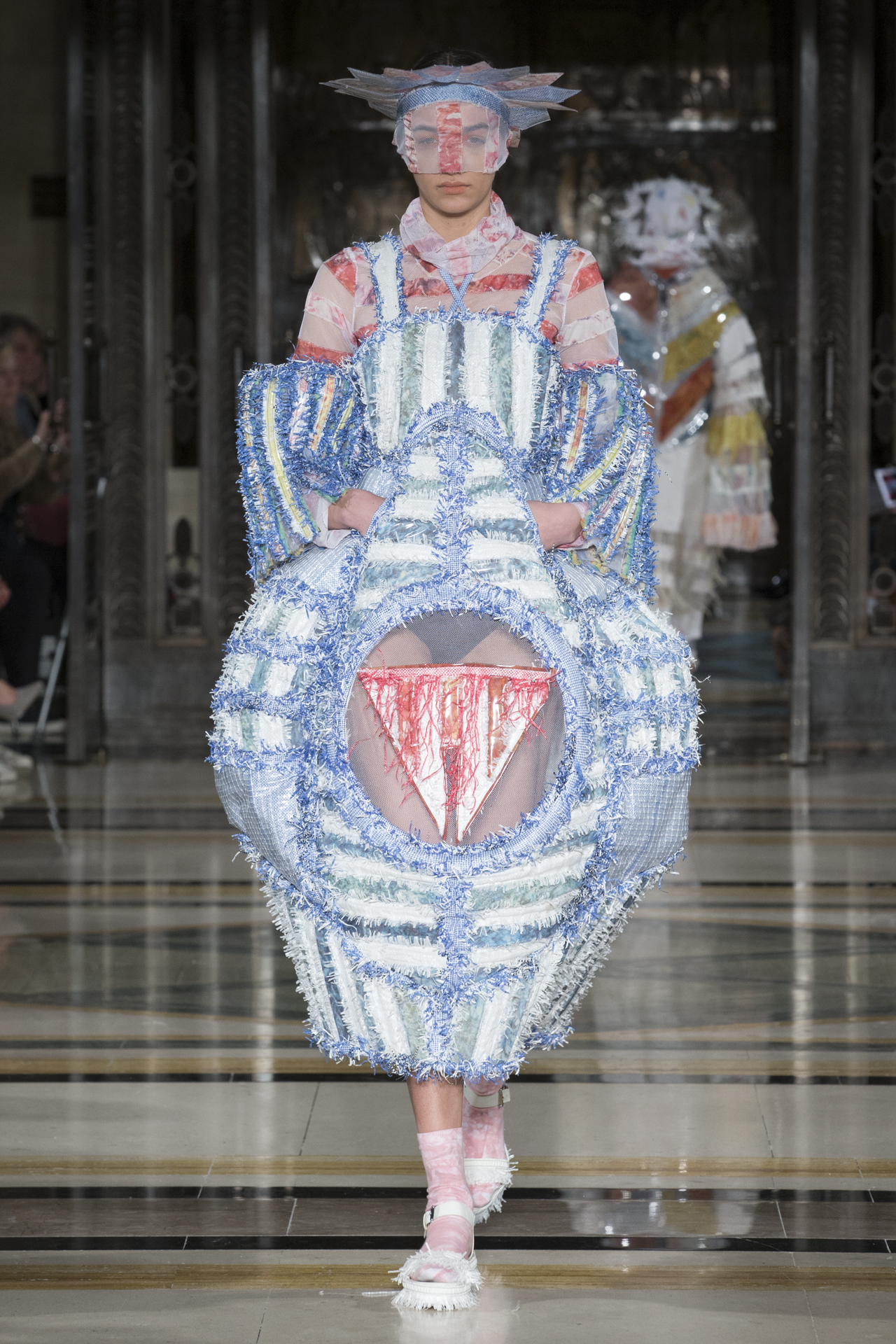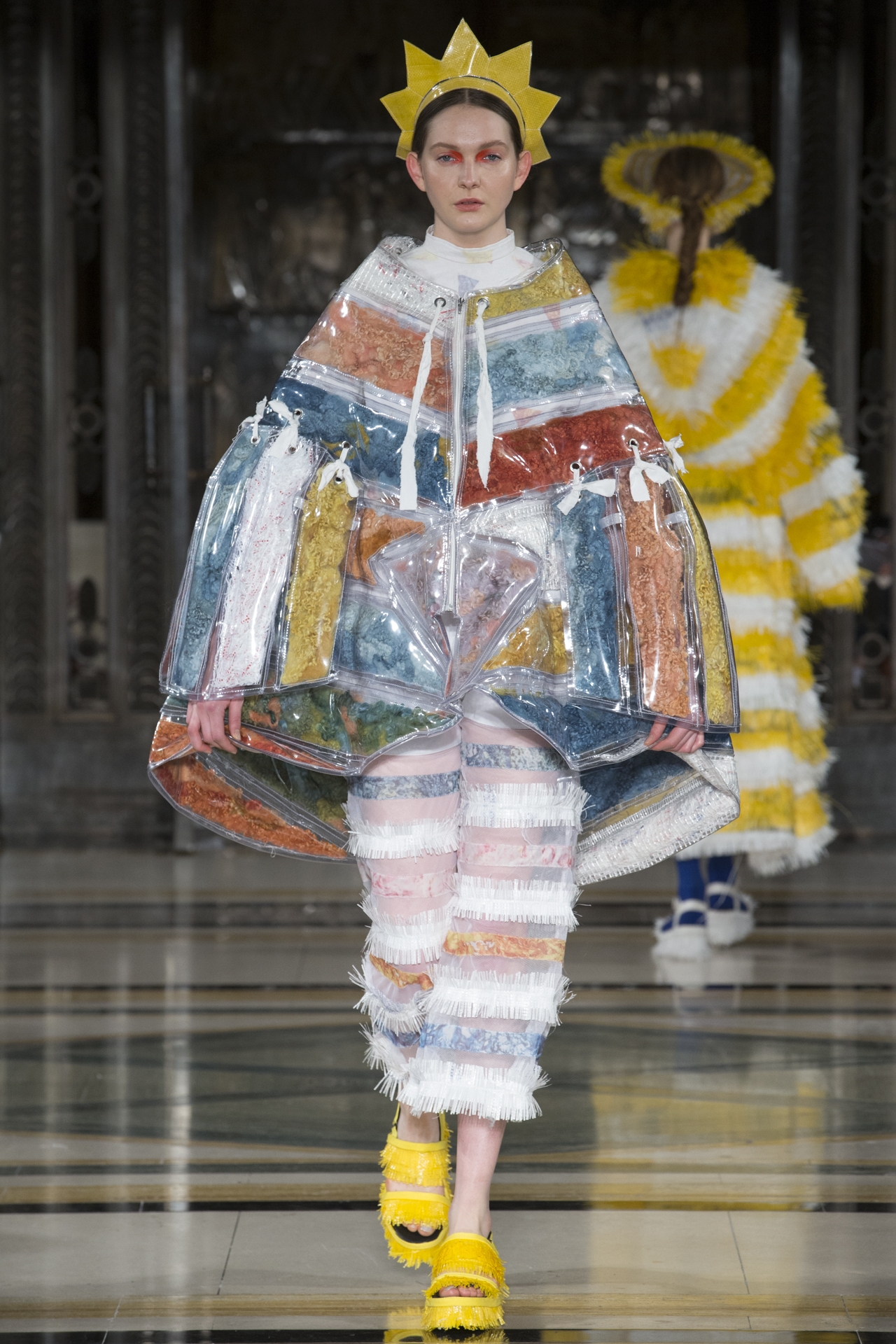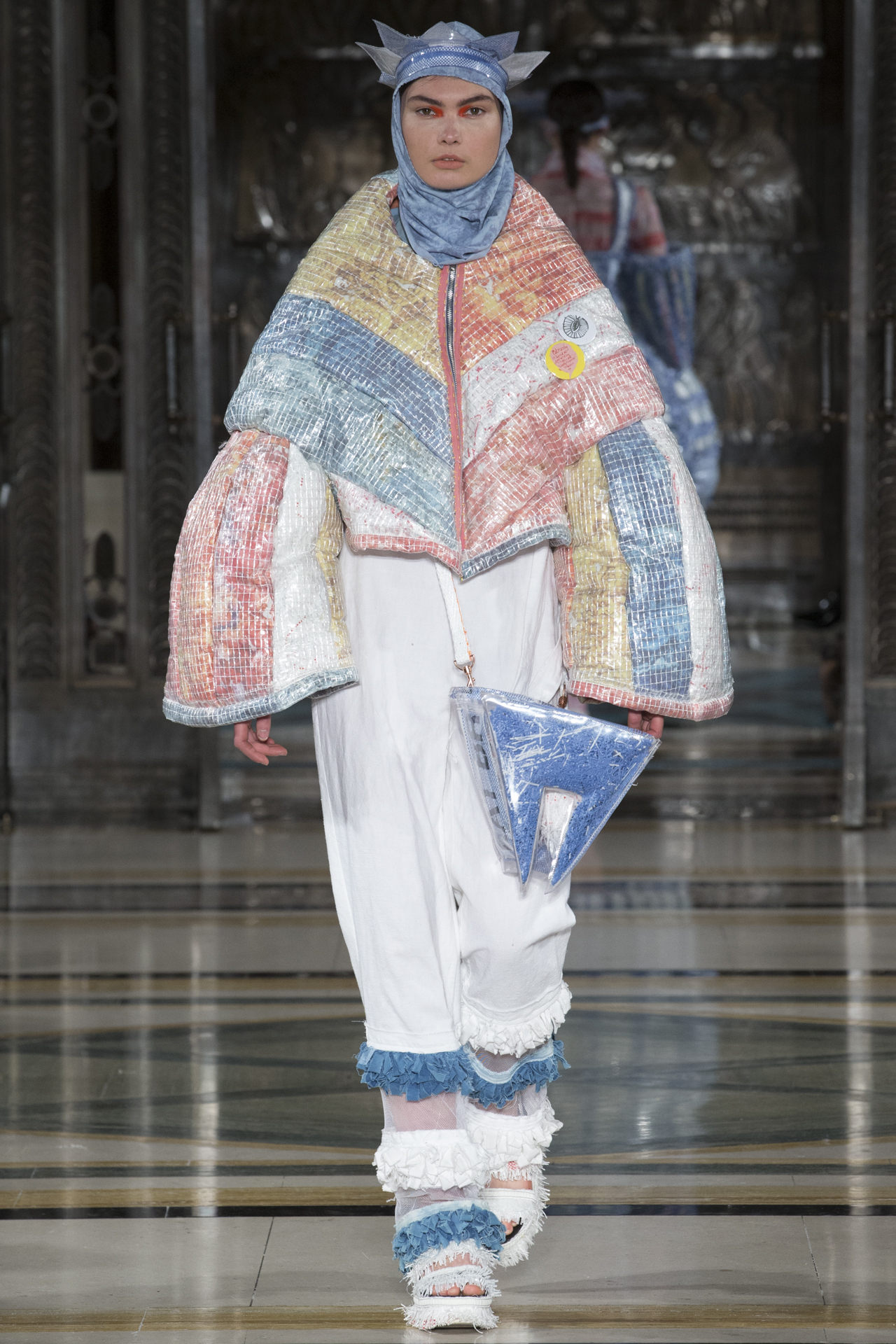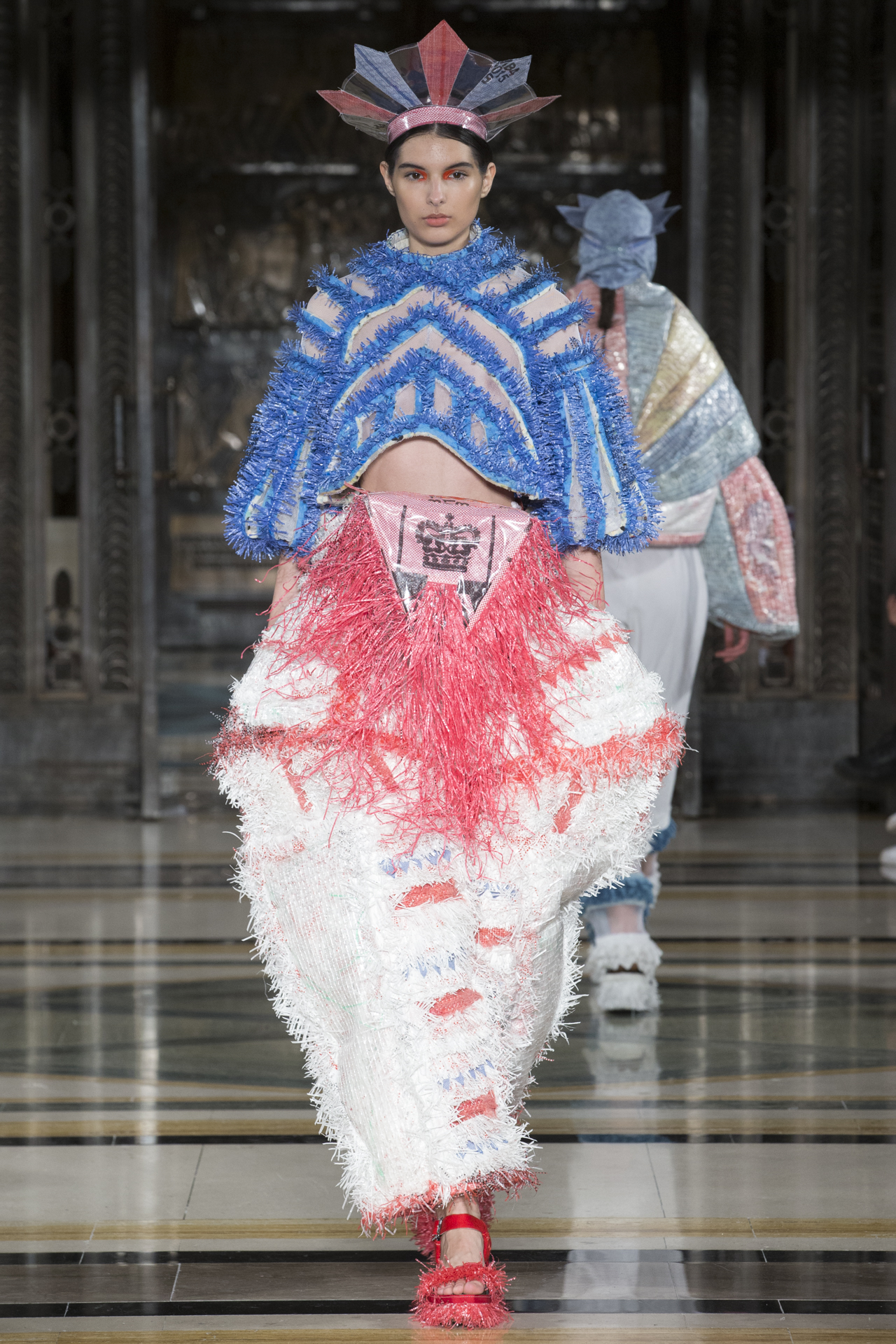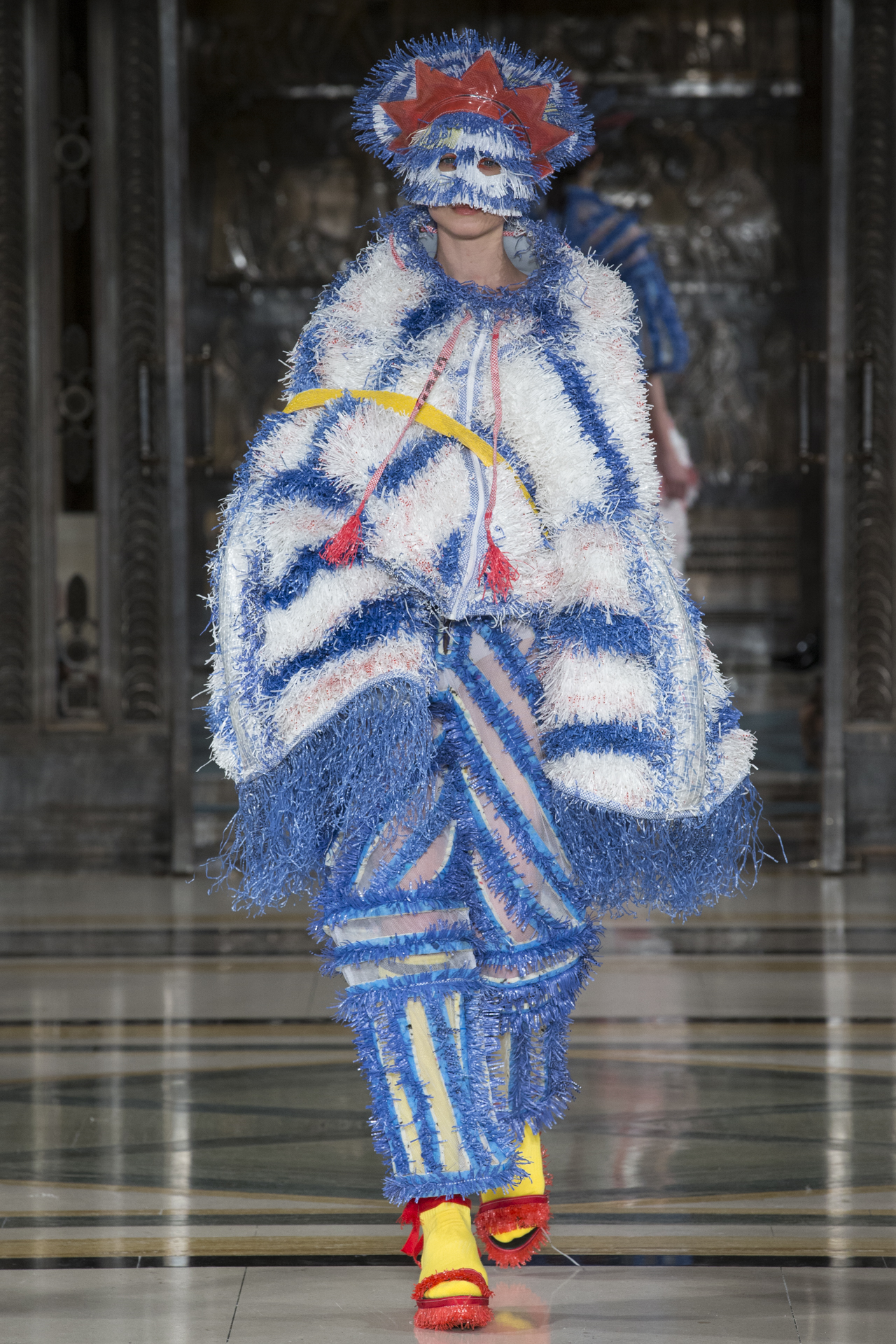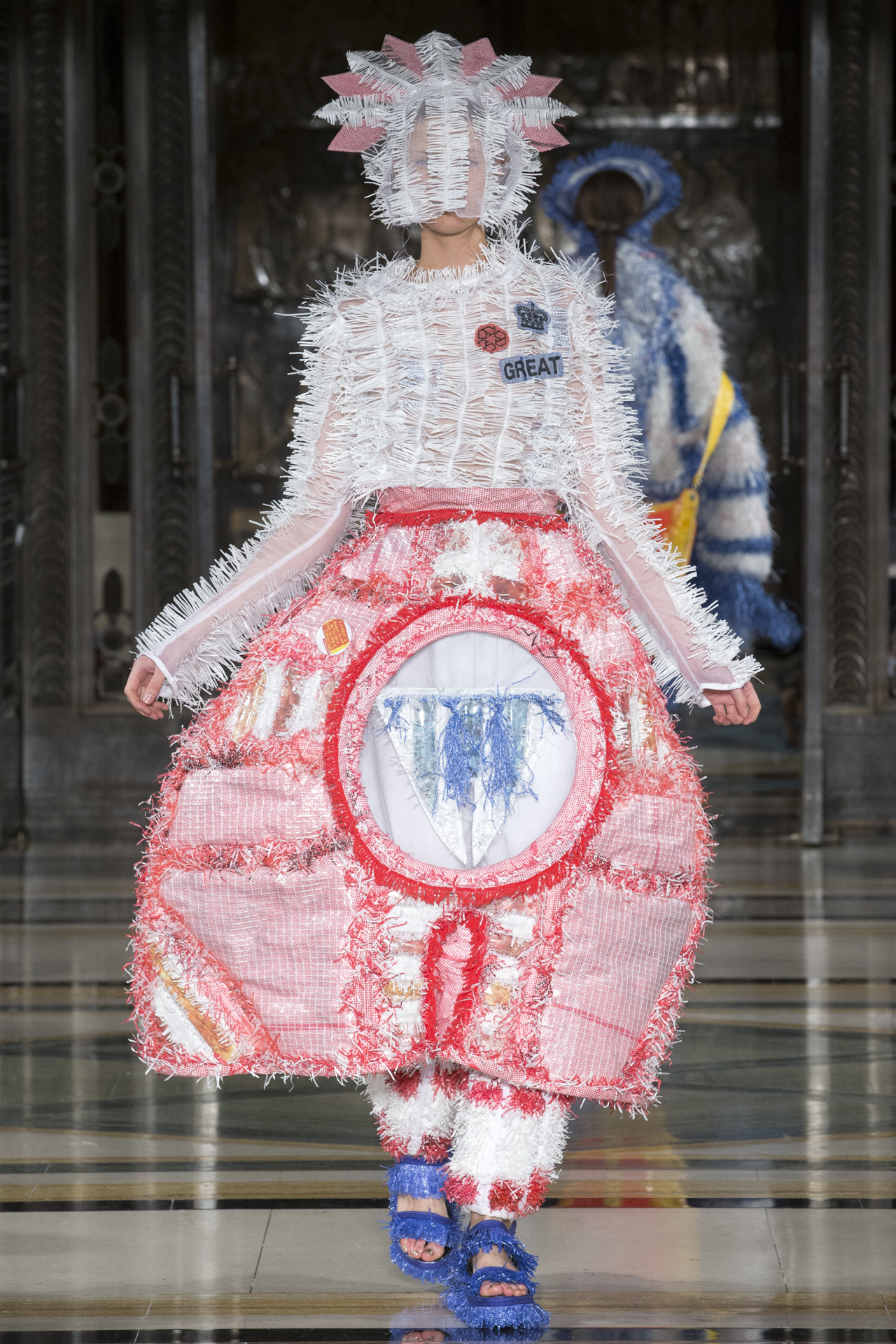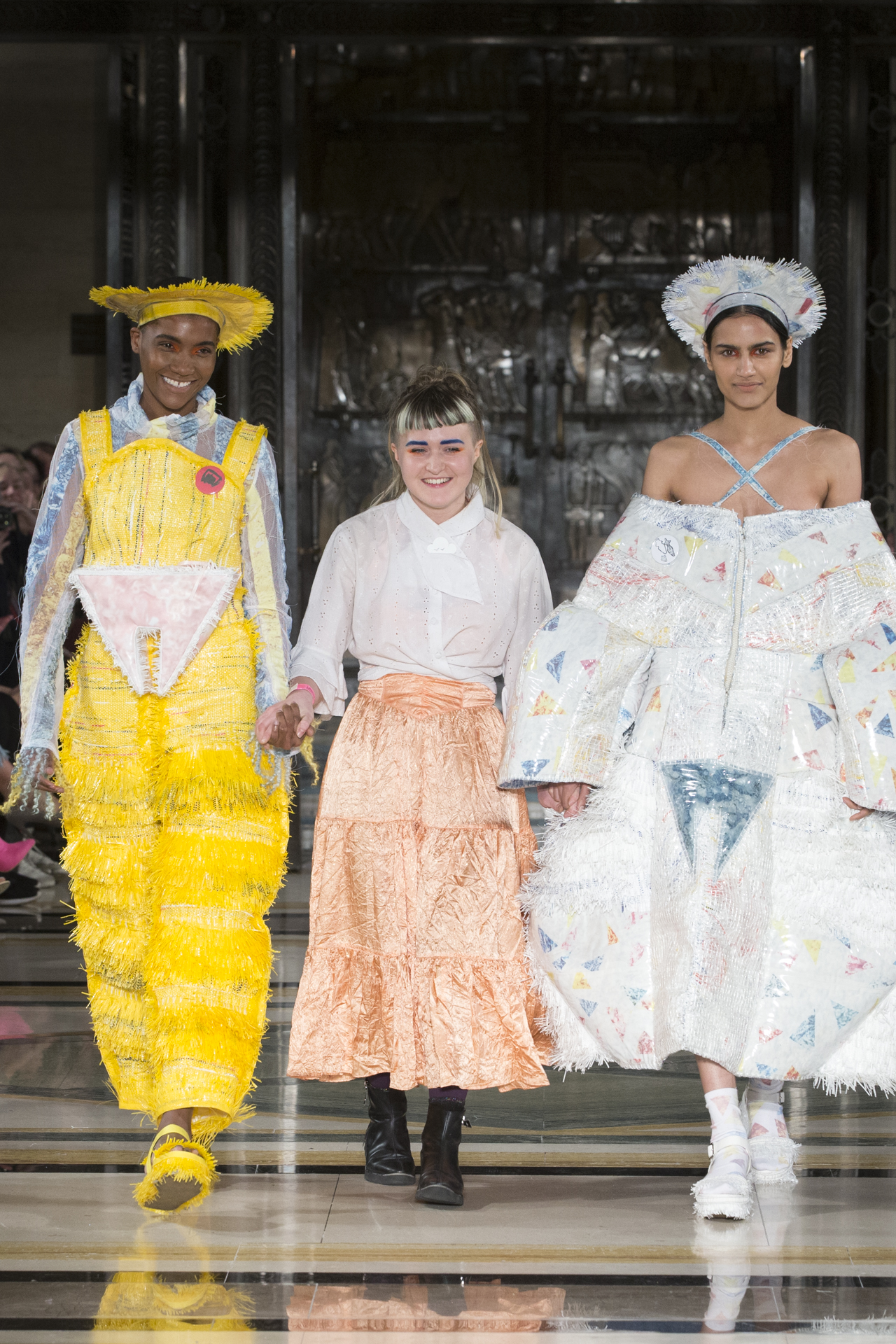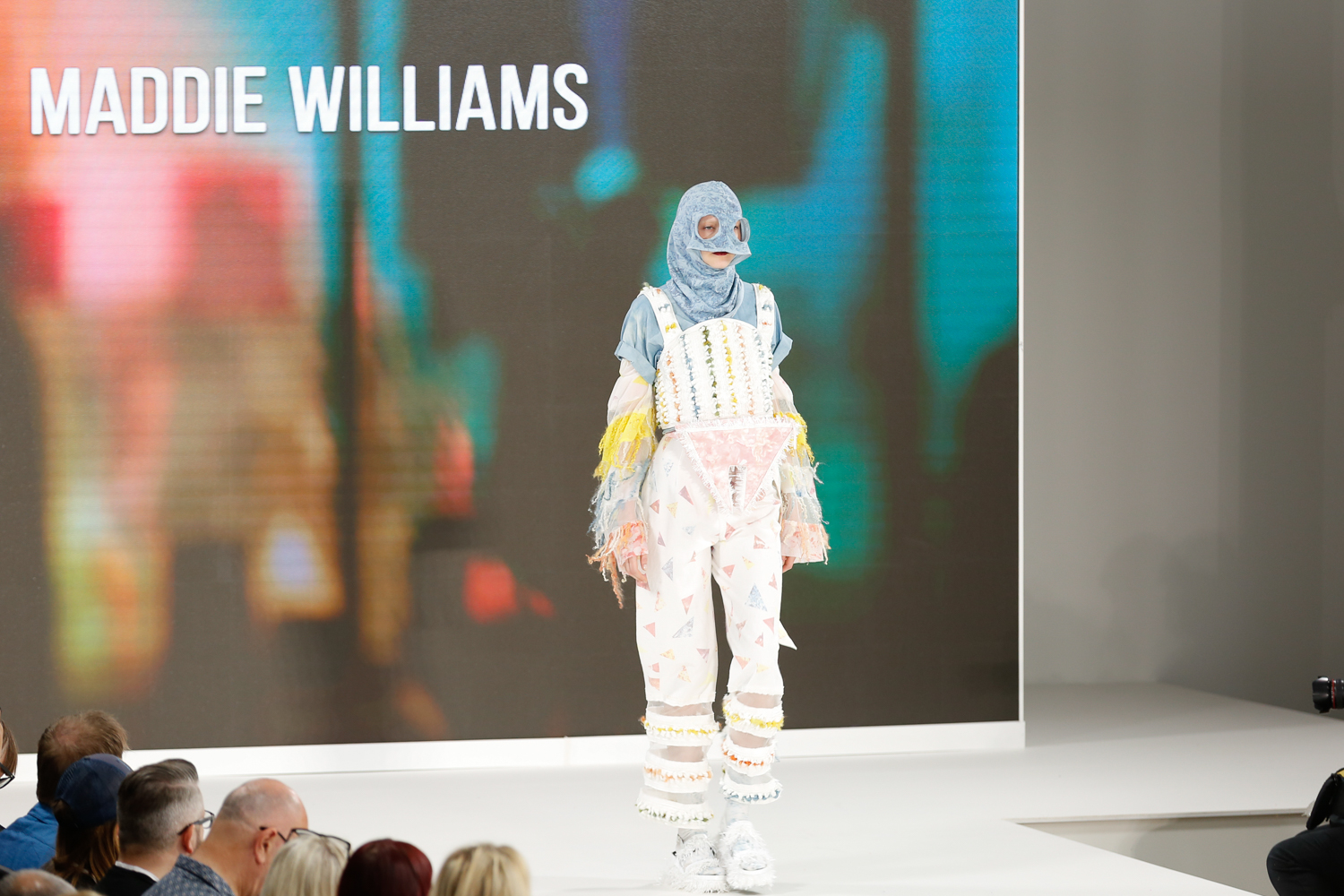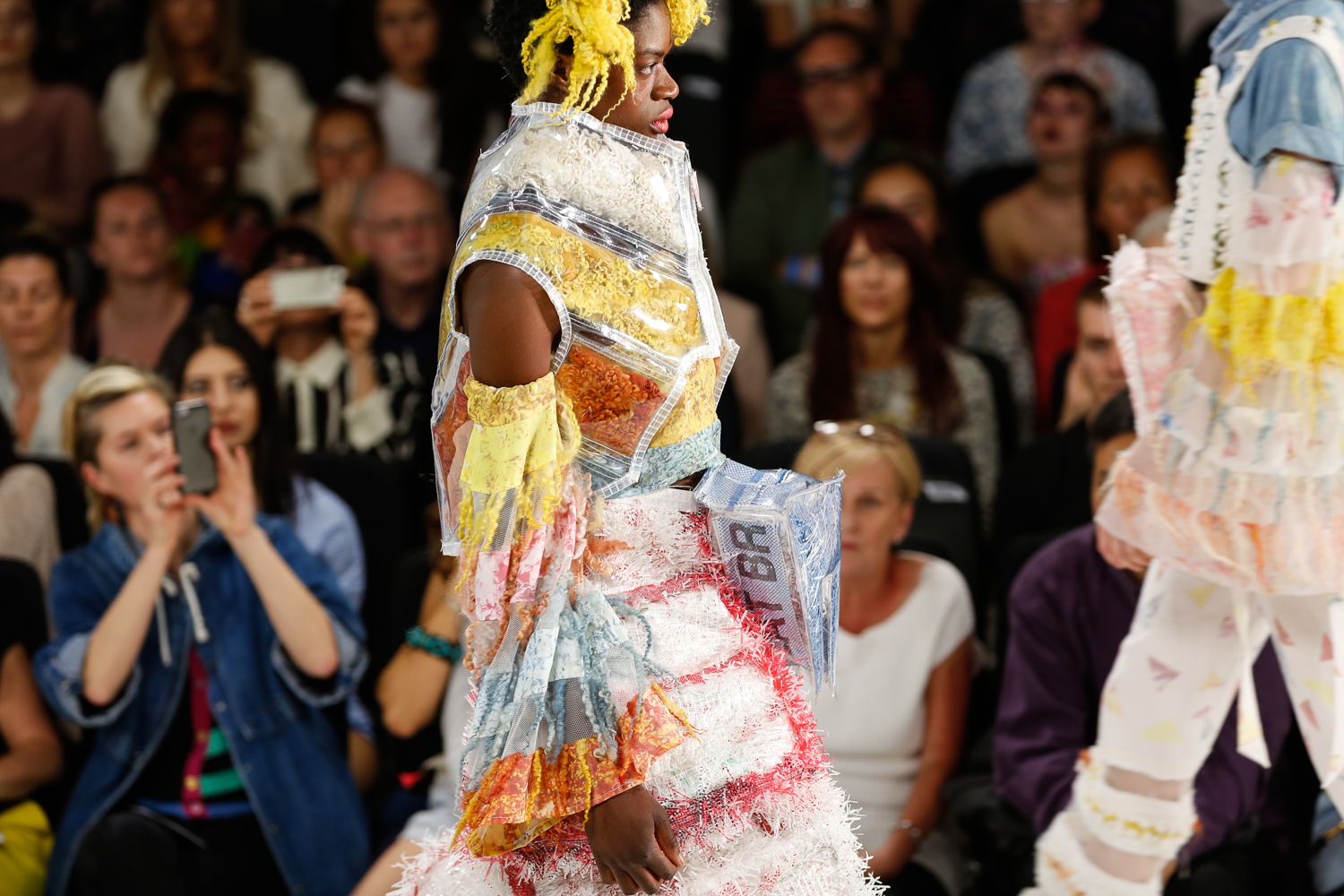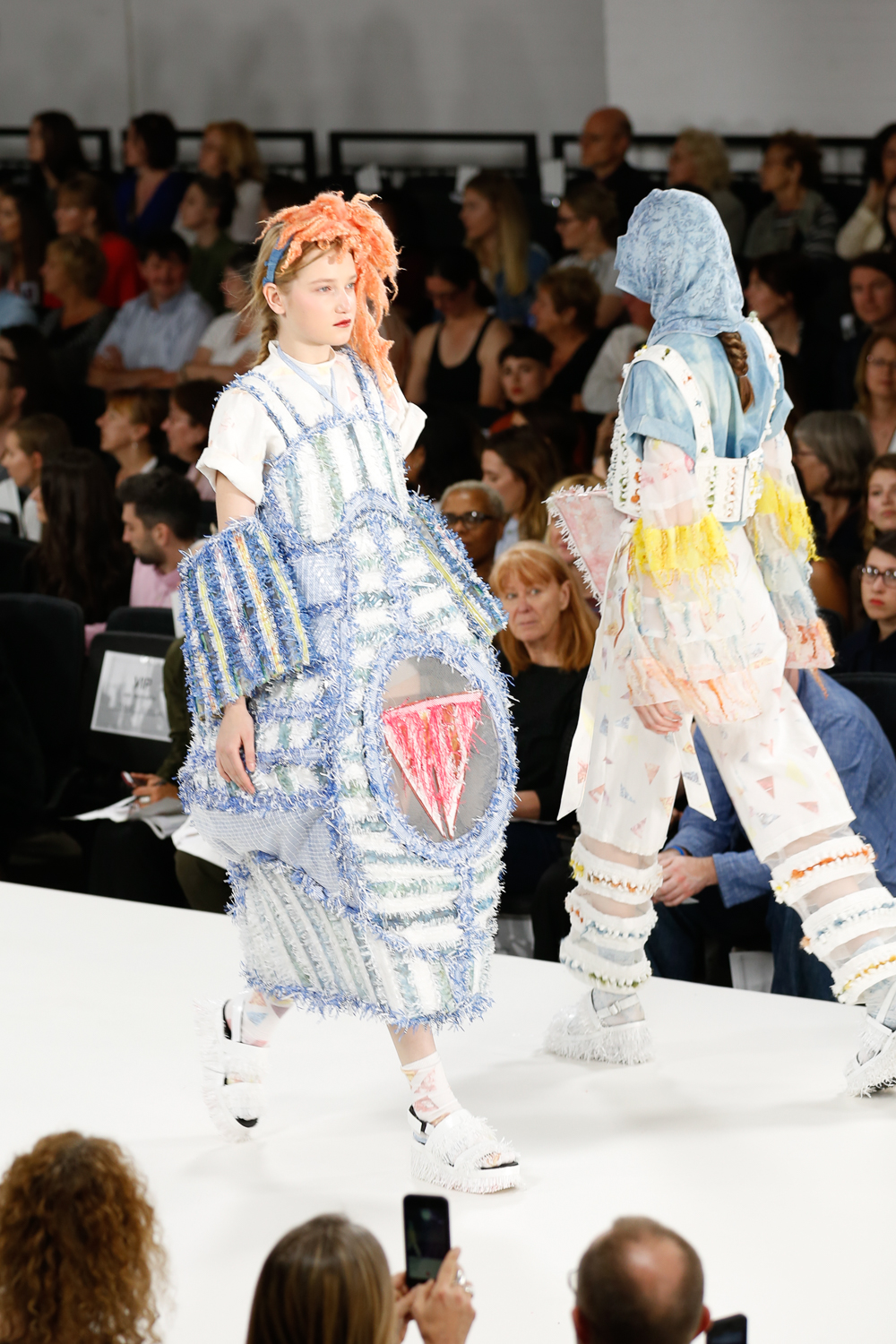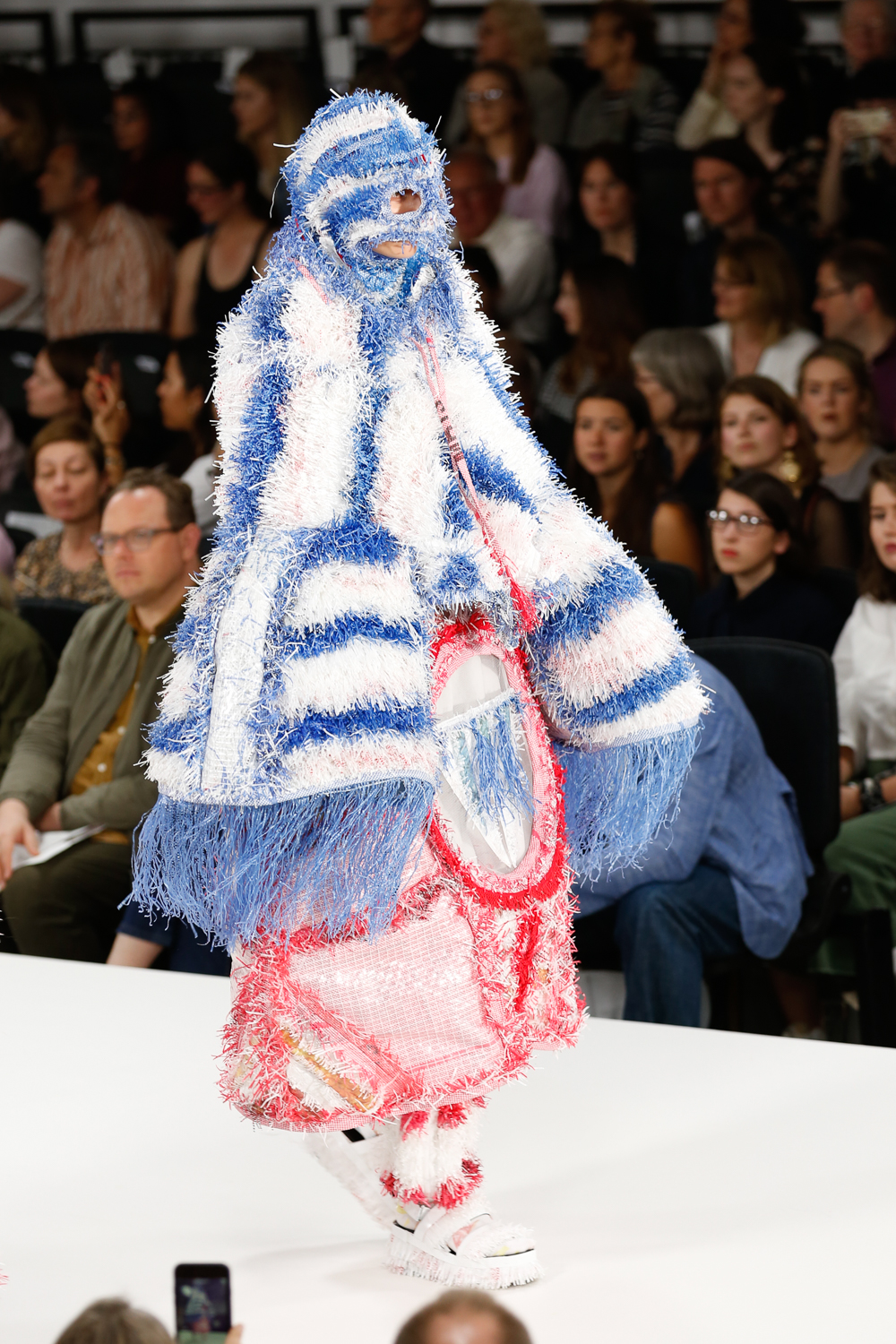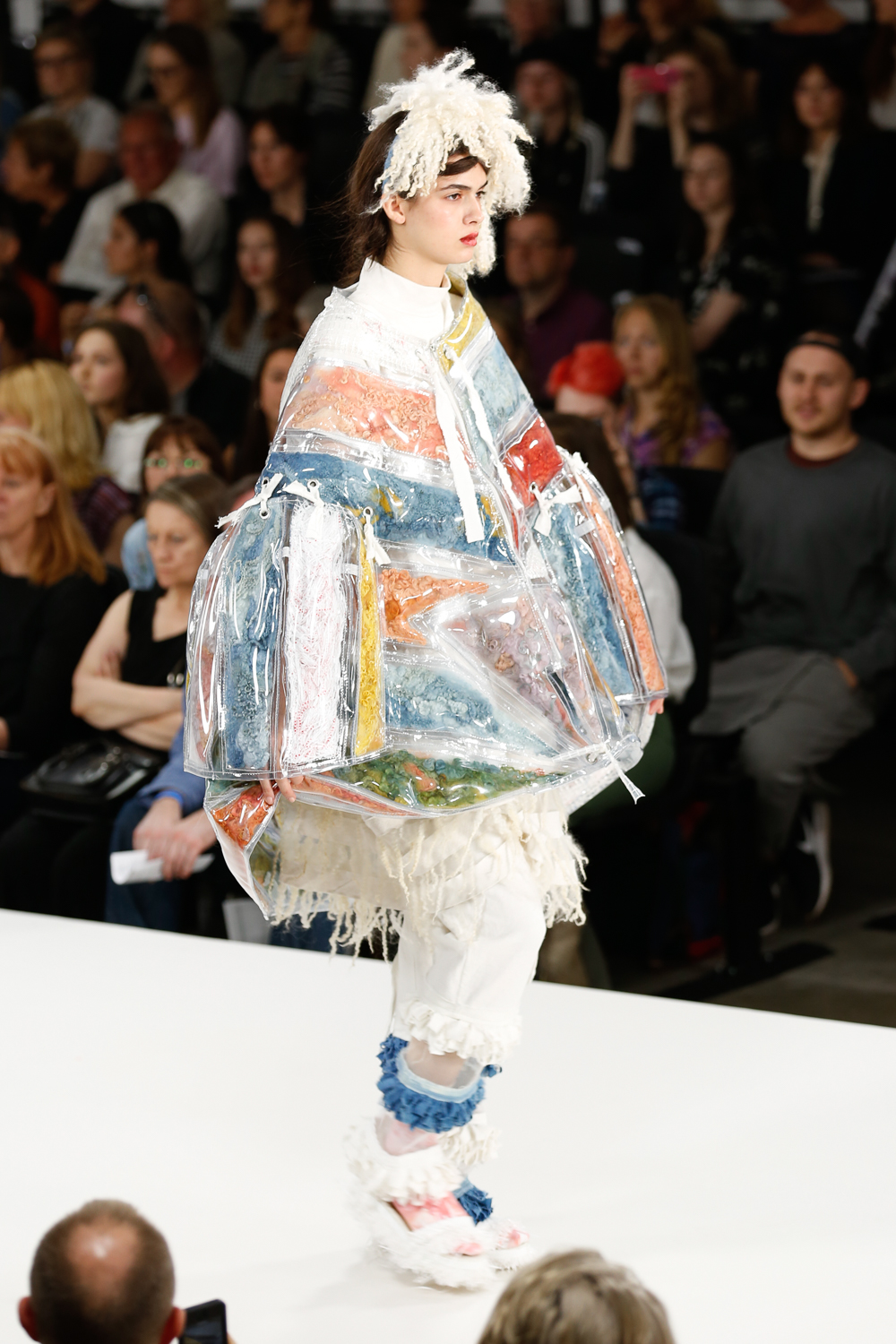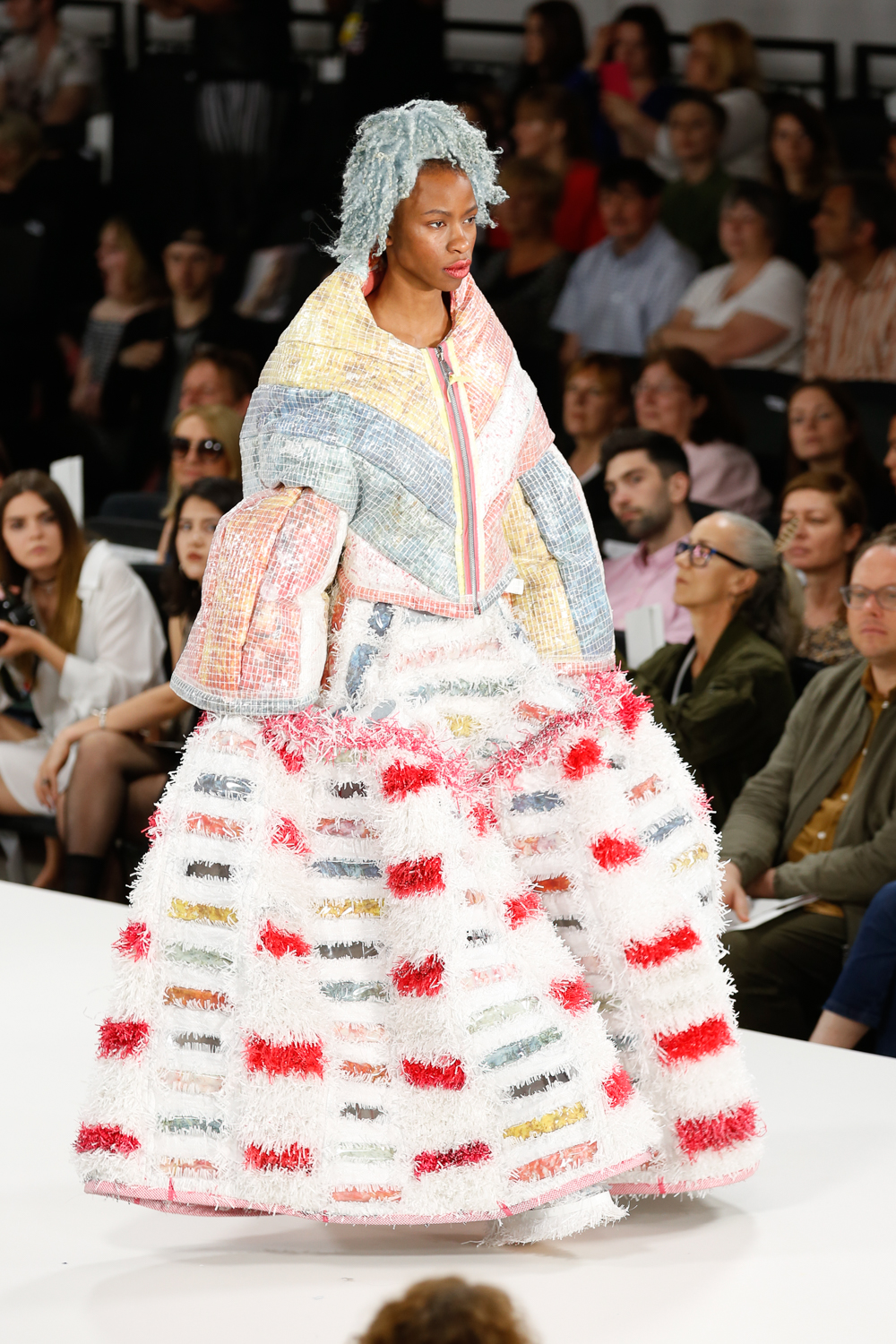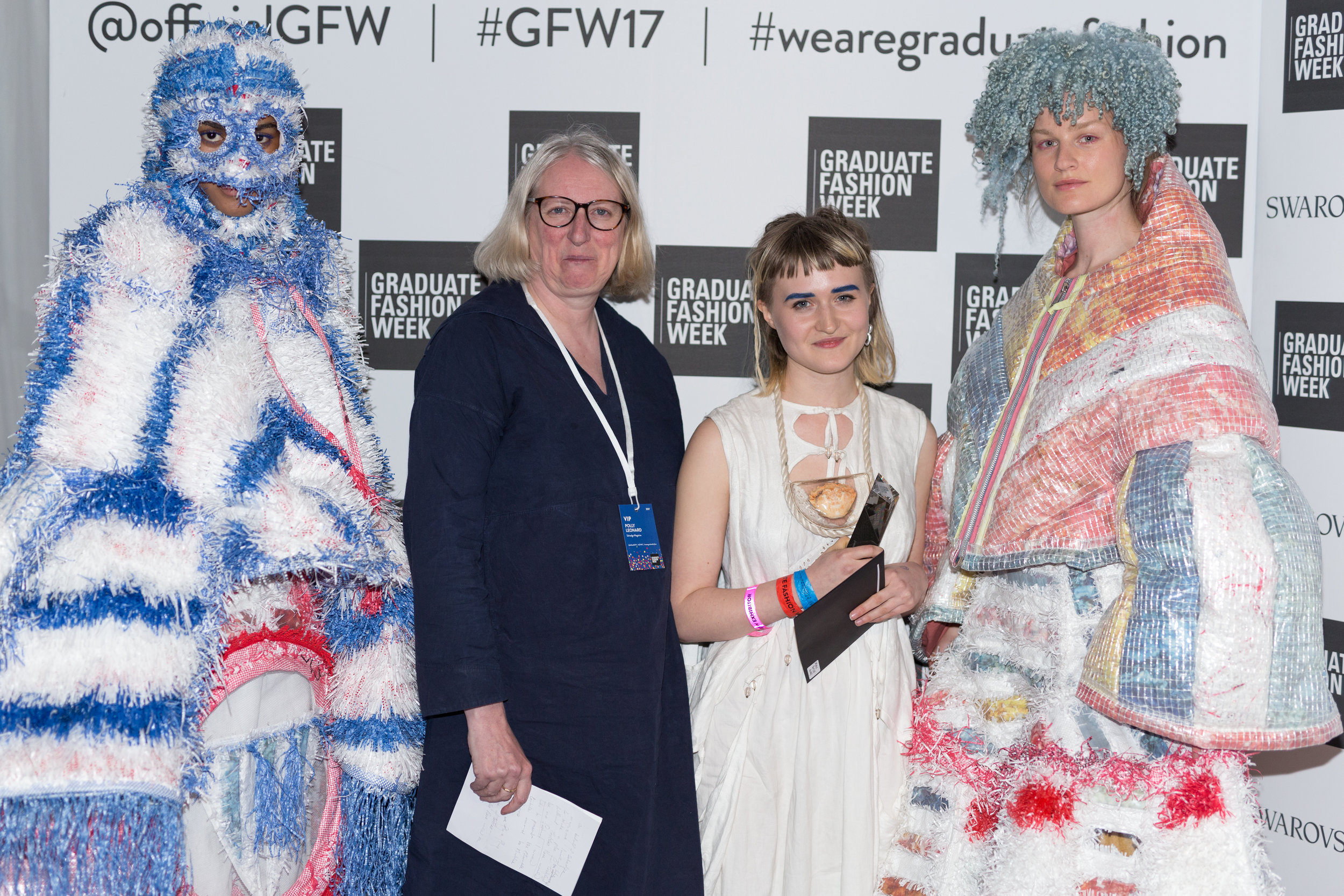Studying fashion design allows many young creatives to find their inner voice and express their views to bigger audiences, however this highly competitive industry can often cause self-doubt and uneasiness. Unpaid internships, first freelance contracts, taxes, salary negotiations, pension schemes, fear of choosing wrong career path – it can be tough for introverted artists and designers to thrive and survive in fashion, but Maddie Williams proves that nothing is impossible!
The young designer gained industry contacts thanks to recognition from Dame Vivienne Westwood and our Protégé Scheme, as well as taking part in Fashion Revolution workshops and tutoring programme at Kingston University. Maddie shares with us how she landed Junior Designer position at Pentland Brands and what it means for her future plans, and how her passion for sustainability and feminism motivates her to push through obstacles.
How did studying at Edinburgh College of Art prepare you to work in the industry?
The course at Edinburgh focuses strongly on creativity and developing your individual voice as a designer, which is great for setting your work apart from other graduates and allowing you the space to be truly creative.
I’ve found that I’ve learnt the more technical and financial aspects of the fashion industry whilst on the job, and I’m still learning every day.
What is the most valuable thing that you learnt at university?
I aim not to compare myself or my work to others! Everyone’s processes and experiences are valid, and things that appeal to one person won’t necessarily appeal to everyone. It’s important not to put yourself down and equally important to be able to celebrate the successes of your peers. Edinburgh had a positive culture of camaraderie between students and I believe that’s the way forward to make the industry more progressive.
Which area of the industry are you pursuing, and what informed this choice?
When I showcased at Graduate Fashion Week, my work was a textile heavy womenswear collection that was closer to costume design than ready-to-wear. The collection had an emphasis on environmental issues and sustainability, which is the area of fashion that I’m most keen to progress within.
A state of climate emergency has been declared, and as an industry we need to be throwing as much of our personal energy end resources as we can to find solutions to and drastically cut our energy and resource consumption.
“Environmentally conscious design doesn’t have to be minimal or hippie — and can be expressive and attention-grabbing to alert more people to the concepts behind it.”
Tell us about your career journey since showing at Graduate Fashion Week. How have you found life in the industry?
Much of what I have continued to do post-Graduate Fashion Week has been directly as a result of participating in the show back in June 2017.
The first role I had was as an intern at Vivienne Westwood for around 4 months. This was possible because I was fortunate enough to be the recipient of one of the Dame Vivienne Ethical Award prizes at Graduate Fashion Week.
While interning at Vivienne Westwood I was tutoring part time at Kingston University on their foundation course - an amazing and incredibly rewarding yet challenging role as a fresh graduate. It forced me way out of my comfort zone; as a naturally introverted person I often found myself suffering from imposter syndrome and had to remind myself that I had already been through what the students were going through now and did have valid advice to give them!
In December of 2017 I found out that I’d been chosen to showcase an extended version of my graduate collection with Fashion Scout at London Fashion Week in February 2018. This meant I spent roughly a month and a half furiously sewing at my parents’ house to get ready for the show! It was such a great opportunity and the Fashion Scout Team were so supportive, however, I didn’t feel ready emotionally or financially to use this as a platform to launch my ‘brand’.
After Fashion Scout I really struggled with finding my feet. It almost felt expected of me that I ought to be starting my own brand but as previously mentioned I didn’t - and still don’t - feel ready to make that commitment. I agonised over this choice, but I knew I needed more time to experience and learn about the industry, and also about myself and what I can offer that would bring something new.
Through Graduate Fashion Week and my mentor, I found a role at Pentland Brands that is greatly improving my computer skills as well as my understanding of how a large apparel and footwear business operates. Once my contract ends at Pentland Brands, I’m looking to start on an MA course in September to develop my knowledge of design and the environment further.
I’ve also assisted with the running of a few fashion upcycling workshops for Fashion Revolution throughout the past year and hope to work with them more in future.
Do you explore any political, social or historical notions through your work? If so, what messages do you hope to convey?
My Graduate Collection imagines a group of Goddess-type figures who serve as the antithesis of the Capitalist Patriarchy. Existing in a Dystopian future unhindered by the constraints of advertising and corporate power, the women dress to celebrate their bodies in a way that they dictate – highlighting feminine attributes to make themselves strong.
They seek to return the world to a more holistic way of living, giving back to the Earth, not just taking, and rebalancing feminine energy with the masculine as well as the relationship humans have with the world.
The collection was informed by the merging of numerous threads of research, from Art Brut, to Ancient Greek philosophy, to the French Revolution, to Witches and Pagan celebrations, to the dress of contemporary Matriarchal Societies. My silhouettes are greatly informed by Ancient Fertility figures – carved figurines that were made to celebrate female regenerative power all across the globe, that accentuate and glorify the form of the female body.
I wanted to show that environmentally conscious design doesn’t have to be minimal or hippie and can be expressive and attention grabbing to alert more people to the concepts behind it.
“I’ve learnt to be open with others about what you want and not be afraid to ask for help. This is advice I’m still trying to follow myself.”
How did you find your role at Pentland?
Through Graduate Fashion Week! When I was awarded the Catwalk Textiles Prize, I was partnered with a mentor from the industry, who was Katie Greenyer (Creative Talent and Network Director at Pentland Brands). When we were first put together, I remember thinking it was an odd pairing because she was from a very corporate commercial world, and my work was the opposite of that.
Katie is an engaging and persuasive person and challenged me to reconsider my preconceptions about the more corporate design world. Katie initially invited me to join Pentland on a part-time three-month internship working with a colleague from the Innovation team researching sustainability and strategies to help make Pentland Brands a more environmentally conscious business. This project culminated in a presentation to the CEO and COO of Pentland Brands, recommending a pathway to making more circular products.
Whilst taking part in the placement I became aware of the design scheme that Pentland runs. It’s a very rare opportunity to be able to learn and gain relevant and practical experience while also being paid for your work, something that is still disappointingly uncommon within the fashion industry. I was also impressed by the positive environment fostered at Pentland Brands and how employees are really looked after.
I thought it’d be foolish not to apply, so I did, and luckily was able to stay!
Where are you hoping to be in five years time?
Ideally, I’d like to be striking a balance between working on my own projects and also doing sustainability consultancy work.
The industry is undergoing huge changes, with sustainability, diversity and responsibility becoming major issues. Do you have any opinions on these movements?
They are definitely necessities for the survival of the industry. Complacency on these issues will lead to irrelevance, and with so many young consumers being more informed and engaged with these issues, designers need to be meeting their needs.
To students that are reading this - what advice would you give to the students hoping to showcase this year?
Being open with others about what you want and also not being afraid to ask for help. This is advice I’m still trying to follow myself – often creative people are quite shy and introverted and communicating can seem like the most terrifying thing, but it’s really important to try and get over that. I know how stressful and anxiety-inducing showcasing at Graduate Fashion Week is, but if you can, try to relax. Make sure you eat enough and breathe, it’s an amazing opportunity to showcase your work alongside your friends so try to enjoy it!
Lastly, what are the top 5 tips you would give your past-self?
1). Remain open minded – it’s unlikely you’ll get your dream role straight away, but that’s okay, it’s all learning.
2). Say yes to things. You never know what opportunities could arise - attend events, meet people, show off your work.
3). Refine your technical skills. You’ll be more employable if you’ve got a niche, whether that’s print design, or pattern cutting.
4). Self-confidence! This is something I find very hard. I always doubt myself and think that others must know better than me – but actually, they often don’t.
5). Take the time out to teach yourself about taxes, pensions etc. When starting your first ‘proper job’, it can be really confusing to learn about how much tax you should be paying or if you have to pay it at all, and if you want to pay into a pension – lots of stuff you really should get taught but never are!



